Climate Council Media Releases
Labor opens the floodgates on climate chaos as NSW cleans up after record-breaking floods
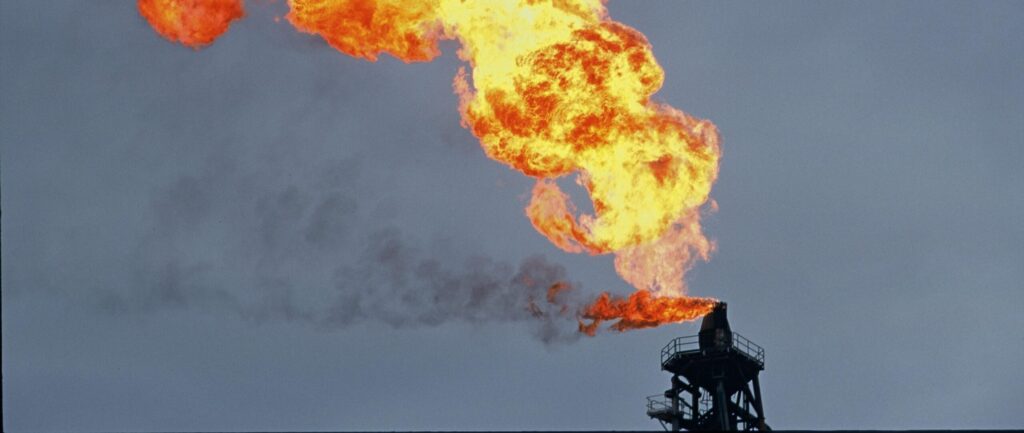
The Climate Council has labelled the Albanese Government’s approval of the North West Shelf gas extension a failure of leadership and a polluting stain on its climate record.
The decision to extend the life of Australia’s largest mainland gas facility until 2070 locks in more than 4 billion tonnes of climate pollution. That is equivalent to a decade of Australia’s annual emissions. It gives proponent Woodside the green light to keep operating one of the country’s most polluting fossil fuel projects until 2070.
Former North West Shelf Manager at BP Greg Bourne said: “Extending the North West Shelf will haunt the Albanese Government. They’ve just approved one of the most polluting fossil fuel projects in a generation, fueling climate chaos for decades to come. This single project will unleash more than four billion tonnes of climate pollution. It undoes the good work they’ve done on cutting climate pollution and betrays the mandate Australian voters just gave them.
“The global market is already awash with gas. It is rubbish to say that Australia needs this gas when the lion’s share is marked for export and none of it will be used on the East Coast. It’s bad for the climate, bad for Australia’s economy, and completely out of step with where the world is heading.”
Climate Council CEO Amanda McKenzie said: “Communities in NSW are starting the cleanup after record-breaking floods. It is shocking that at the same time the Albanese Government has approved this massive climate bomb as the first act of this term of government. They’ve just opened the floodgates on over 4 billion tonnes of climate pollution.”
“Peter Dutton promised to approve this project before the last election. Voters rejected Dutton. Why would the Albanese Government take Dutton’s lead on climate policy? Approving the North West Shelf extension leaves a polluting stain on Labor’s climate legacy. Australians voted for a renewable-powered future, not more climate pollution and destruction.
“If the Government is actively making the climate crisis worse it must explain to communities, like those experiencing flooding right now, how it will protect them from more frequent and forceful extreme weather events.”
This project marks the Albanese Government’s 27th coal, oil or gas approval since taking office. It is the most polluting of them all.
Key facts on North West Shelf:
- Gas is a polluting fossil fuel: It’s made up mostly of methane, which is a potent greenhouse gas. Gas accelerates the climate crisis when it is released or burnt. When exported, it’s just as bad for our climate as coal.
- This project is not needed to support renewable power in Australia. Most of it will be exported, and in WA where the project is located: only 0.7 – 1.0% of WA’s gas supply is needed for electricity generation in the state over the next nine years. WA has more than enough gas to meet this need. Nationally, there is a small and declining role for gas in the switch to clean energy, and it is wrong to claim this project will play a role.
- Over its 45-year life, the project would lead to over 4 billion tonnes (gigatonnes) of climate pollution. This is more than double the two billion tonnes of climate pollution associated with the Coalition’s nuclear scheme to 2050.
- This is equivalent to 10 years of Australia’s current climate pollution, and will contribute to more intense and frequent unnatural disasters that are harming Australians.
- While most of the gas will be exported, the pollution from gas extraction and processing is expected to be 7.7 million tonnes per year – equivalent to the annual pollution from a coal-fired power station or 2.8 million cars. That would make it Australia’s second most polluting fossil fuel facility.
- UNESCO has warned that industrial emissions from this gas facility are damaging 50,000-year-old Indigenous rock art. Instead of protecting the globally significant heritage site at Murujuga, the Albanese Government has waved through decades more pollution.
Categories:
Albanese Government tested on most polluting fossil fuel project yet
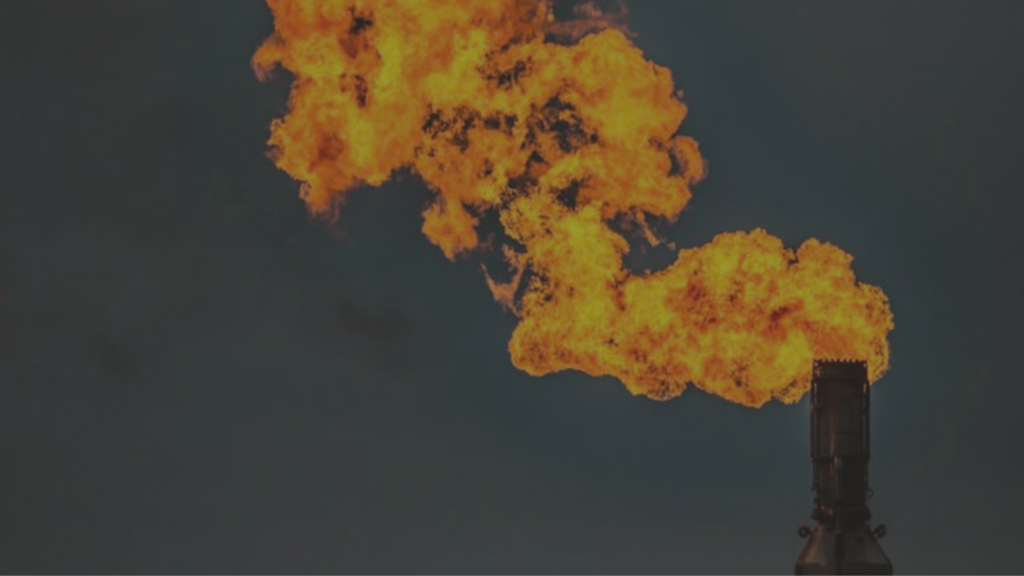
Newly minted Environment Minister Murray Watt is expected to decide in the coming days whether to approve Woodside’s bid to extend the life of the North West Shelf gas facility out to 2070.
If approved, it would be the most polluting fossil fuel project greenlit by the Albanese Government, and its 27th fossil fuel approval since taking office.
The project would release 4.4 billion tonnes of climate pollution over its lifetime, twice as much as the Coalition’s now-abandoned nuclear scheme, and equivalent to more than a decade of Australia’s annual emissions.
Climate Council CEO Amanda McKenzie said: “Labor’s landslide victory opens the opportunity for the Government to do what’s right to protect our kids’ future: to reject this massively polluting project that would spew 4.4 billion tonnes of climate pollution into our air.
“Peter Dutton promised to approve this project before the last election. Voters rejected Dutton and the Government must now reject this project too.
“Approving the North West Shelf extension would be a polluting stain on the Albanese Government’s climate and energy legacy – undermining all the strong progress made on renewable power.”
Climate Councillor Joel Gilmore said: “This project is about more gas for foreign interests, not Australian energy needs. With the International Energy Agency projecting a huge uptake of renewables, nearly a quarter of all liquefied gas won’t be needed by 2030. We don’t need to make this problem worse by producing even more polluting gas.
Five reasons why an extension of the North West Shelf would be rotten for our climate:
1. It’s a climate bomb that will harm more Aussies.
The North West Shelf extension is a climate bomb that would unleash 4.4 billion tonnes of climate pollution, making it Australia’s second worst polluting fossil fuel facility. That’s 10 years’ worth of Australia’s emissions, and twice as polluting as the Coalition’s nuclear scheme would have been. (Thankfully, that bombed at the ballot box.)
Digging up and burning coal, oil and gas is overheating our planet and endangering the Aussie way of life. More climate pollution would cause more intense and frequent unnatural disasters that put even more Australians in harm’s way.
2. It would undermine all our efforts to cut climate pollution elsewhere.
Australia is making progress on climate solutions, with the Albanese Government introducing major policy reforms in the last Parliament that are expected to cut Australia’s 2030 climate pollution by 39 million tonnes – across electricity, transport, buildings and industry.
In contrast, the North West Shelf extension is expected to produce 88 million tonnes of climate pollution each year, more than twice that cut by the Albanese Government in 2030. Unleashing a massive climate bomb like this would completely undermine the Government’s efforts to cut climate pollution elsewhere.
3. It threatens Australia’s climate credibility and regional security.
Pacific nations are on the frontlines of climate impacts and tackling climate change is central to safeguarding our regional security. Approving new fossil fuel developments threatens our crucial relationships with our Pacific allies who have long called for Australia to stop approving coal and gas projects. This has implications for Australia’s security relationships and our bid to host the next United Nations climate conference (COP31) in partnership with the Pacific.
4. No one wants, or needs, this polluting and expensive gas.
The vast majority of the gas from the North West Shelf would be exported. Any gas reserved for domestic use could only be used in Western Australia, which already has a huge gas supply far exceeding its own needs. The rest of the world is heading in the same direction, with global supply of liquified gas (LNG) expected to outstrip demand by 27% by 2030. The benefit from this project will largely be for Woodside and other multinational companies. If we don’t need this gas, and the rest of the world is oversupplied too, what’s the point?
5. Australians voted for a renewable-powered future – not climate destruction.
At the 2025 Federal Election, Australians gave Labor its strongest mandate since World War II to go further and faster on cutting climate pollution and ramping up renewables. Meanwhile, Opposition Leader Peter Dutton put nuclear and expanding gas (including fast tracking this North West Shelf approval) at the heart of his election campaign. He not only lost the election, but also his own seat.
Approving the North West Shelf extension would be climate vandalism. It would stain any legacy the Albanese Government hopes to build around protecting Australians from climate change and powering our future with renewable energy.
With our kids’ future at stake, we’re closely watching how this unfolds.
—-
For interviews please contact the Climate Council media team on media@climatecouncil.org.au or call 0485 863 063.
The Climate Council is Australia’s leading community-funded climate change communications organisation. We provide authoritative, expert and evidence-based advice on climate change to journalists, policymakers, and the wider Australian community.
For further information, go to: climatecouncil.org.au
Or follow us on social media: facebook.com/climatecouncil and twitter.com/climatecouncil
Categories:
Climate denial nukes Coalition as Australians call for more climate action
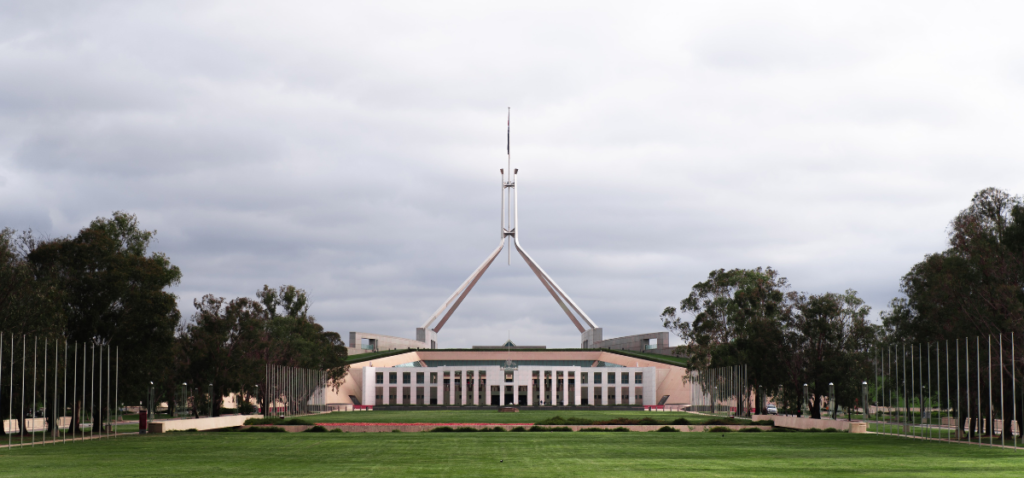
The Nationals Party decision to keep denying climate science, and walk away from the Liberal Party, will hurt their constituents in the bush. Together they were a political drag on Australia’s clean energy momentum.
Climate Councillor and energy expert Greg Bourne said: “Australian voters have moved on, but some politicians are stuck in the mud of climate denial unable to even acknowledge the climate challenge is there, let alone come up with a credible plan to tackle it. And yet many in the farming community are in the direct firing line of climate change driven extreme weather events.
“The 2025 Federal Election result has shown us that parties without credible climate and energy policies are unelectable.”
Mr Bourne said this is part of a fundamental shift in Australian politics, with climate change now a permanent fixture of our elections.
“Australian voters gifted the Albanese Government with its biggest mandate since World War II. Now they have a historic opportunity to keep powering on with renewable energy and storage, do more to regulate polluters and set new, stronger climate targets, and at the same time give support to those most in need from the havoc wreaked by extreme weather events.
“The Albanese Government must demonstrate it is a party of climate science by setting a strong 2035 target that can guide the country on further and faster cuts to climate pollution. The policies that underpin that will need to address the ongoing expansion of coal, oil and gas that is driving harmful climate change. An early litmus test is a decision on the North West Shelf project.”
Greg Bourne said: “The Coalition went to the 2025 election without a plan to cut climate pollution, and a nuclear scheme that would result in massively more climate pollution, not less. They suffered their worst election defeat ever, and now the Coalition is split in two. Climate denial is political poison.”
Categories:
Central-West Orana Renewable Energy Zone set to send cheap, reliable clean energy to 2.7 million homes
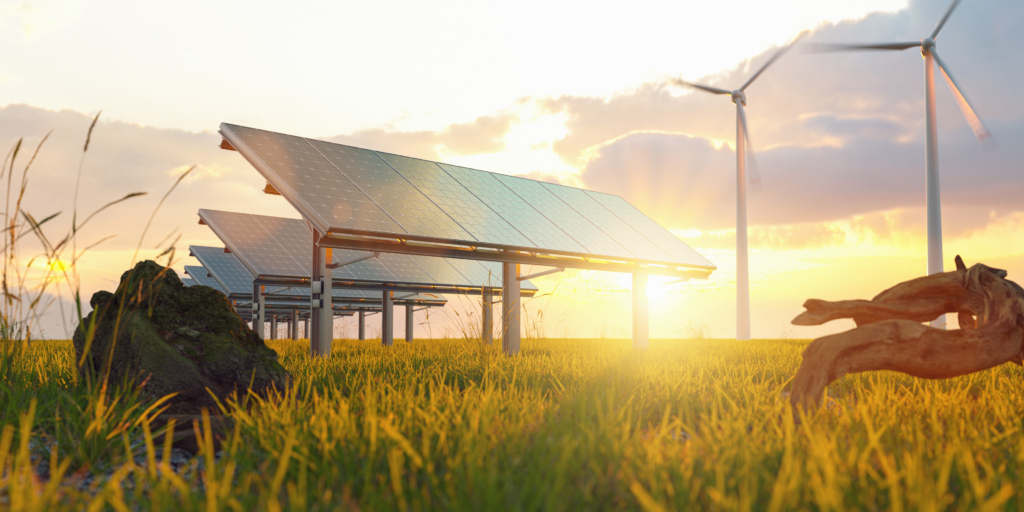
The Climate Council celebrates the NSW Government’s announcement of 10 wind, solar and storage projects built in the Central-West Orana Renewable Energy Zone that will power millions of homes and businesses with clean energy.
Climate Councillor and energy expert, Greg Bourne, said: “Growing our wind and solar generation capacity is integral to fortifying Australia’s energy mix as polluting coal use declines. More gigawatts of energy and storage will see millions more Australian homes and businesses powered by cleaner, cheaper energy.
“Renewable power like wind and solar, backed by storage, can meet almost all of our electricity needs around the clock. New South Wales can get there by strategically building out the critical connections between projects and transmission infrastructure across the state, through Renewable Energy Zones like this one.
“In addition to keeping the lights on and reducing our energy bills, renewables bring lasting benefits like good jobs and upgrades to essential infrastructure and services in communities.”
Climate Council CEO, Amanda McKenzie, said: “The Federal Election was a massive endorsement of the Labor Government’s renewable energy policies, which can keep our energy bills down and cut harmful climate pollution. The NSW Government is also making progress, with new projects clustered together in Renewable Energy Zones set to make the most of our abundant sunshine and wind resources.
“This week, the Australian Energy Market Operator confirmed that renewables are supplying a record share of the power in Australia’s main energy grid. Pair this with more Australians embracing clean and reliable renewables, and we have a clear pathway forward when it comes to powering ourselves for generations to come.
“Staying the course will reduce energy bills and improve energy security for households and businesses, while creating regional jobs and cutting polluting fossil fuels like coal out of our energy mix.”
Categories:
Power surge: renewable energy hits record high as coal splutters
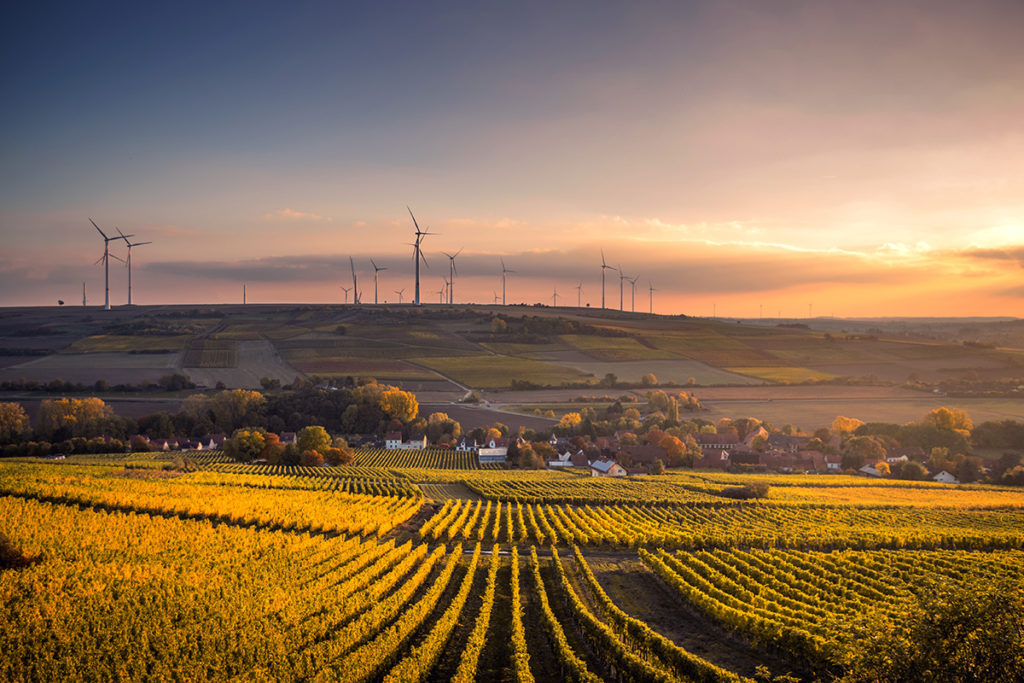
Renewable energy is supplying a record share of the power in Australia’s main energy grid, according to the latest update from the Australian Energy Market Operator (AEMO).
AEMO’s Quarterly Energy Dynamics Report says renewables, including solar and wind, powered 43% of Australia’s electricity grid in the first three months of 2025 – the highest first-quarter amount in the National Energy Market’s 25-year history.
- Grid-scale solar generation (+10% from Q1 2024) and battery generation (+86%) reached all time highs this quarter.
- Rooftop solar (+16%) and wind (+18%) reached new Q1 highs.
- Climate pollution in our electricity system is at its lowest ever level for Q1 (-5% compared to this time, last year).
- Black and brown coal-fired generator availability declined to record Q1 lows.
- Gas usage decreased by 8.3% – at the same time that gas prices on the east coast rose to a new Q1 record of $13.26/GJ.
Climate Councillor and energy expert, Greg Bourne, said: “Polluting, expensive coal continues to dwindle as our renewable and battery capacity ramps up. Renewables will keep breaking records and Australia’s wholesale electricity market will continue to become cleaner and more reliable.
“The energy market operator reports that overall our power use is increasing and renewables are meeting the challenge. Not only that, they’re driving down climate pollution from our power system, with carbon emissions five percent lower than the same time last year. All of this is building a cleaner, safer future for our kids.“
“Importantly the use of gas went down but the price increased. Australians should be clear that the role of gas in our energy system is small and continues to shrink.”
Climate Council CEO, Amanda McKenzie, said: “Australians have just voted overwhelmingly for a renewable future. The newly elected Albanese Labor government can seize this mandate and go further and faster in modernising Australia’s grid and delivering on commitments to energy and climate.
“Australian households love rooftop solar and collectively they’re saving nearly $3 billion a year on their power bills. The savings will be even bigger if more households can add a battery to their solar system as promised under Labor.
“Aussies have resoundingly rejected false solutions like nuclear because we know that renewables work, but we need more of them. And this report proves it.”
Categories:
Climate denial now electoral poison, with voters expecting Labor to go harder on climate pollution

FRESH CLIMATE COUNCIL ELECTORAL ANALYSIS shows Australian voters have delivered a strong mandate for the incoming Labor Government, with voters backing a renewable-powered future as nuclear bombs at the ballot.
The report examining Australia’s national vote shows the ALP’s two-party preferred vote increased in most seats where offshore wind debate raged, in spite of significant campaigns against the projects. Pro-climate independents also won more primary votes than in 2022, with an average 3.8 percent increase in contested seats, rendering the Coalition unelectable unless the party develops credible climate and energy policies.
Climate Council CEO Amanda McKenzie said: “Voters have sent a resounding message: no party can expect to govern this country without a credible plan to cut climate pollution. Peter Dutton’s scheme to delay climate action with a nuclear fantasy was a major turn-off – particularly for women and undecided voters. Instead, in overwhelming numbers, people voted for Labor’s cleaner renewable-powered future backed by storage, including home batteries.”
“Climate denial and delay are now politically toxic in Australia. This is a lesson that the Coalition ought to have learned in 2022, when a record number of climate champions knocked out seven of their MPs. The 2025 election results show this is now a political norm: voters won’t consider you fit for government unless you have sensible policies that pass the climate barometer. Aussie voters expect, and deserve, much better than Trumpian attacks on science and climate denialism.”
Ms McKenzie said the new Parliament represented a new opportunity to build on the progress that was made during the last term on renewable energy and clean transport.
“This is history in the making. Voters have backed in a bright, clean energy future, and bestowed the ALP its biggest majority since World War II. History will remember what we do next. Now’s the time to go big on rolling out more renewable power and storage faster, and putting hard limits on climate pollution.”
“A big majority is a big opportunity to genuinely tackle the key issues of our time and leave a lasting legacy. Early tests of the Government’s mettle will be whether they reject massive fossil fuel projects and set a strong 2035 climate pollution reduction target.
Climate Council’s report also finds that, by the next election, Australia will likely be two-thirds powered with renewables, making our clean energy momentum virtually unstoppable.
Categories:
Coalition nuked
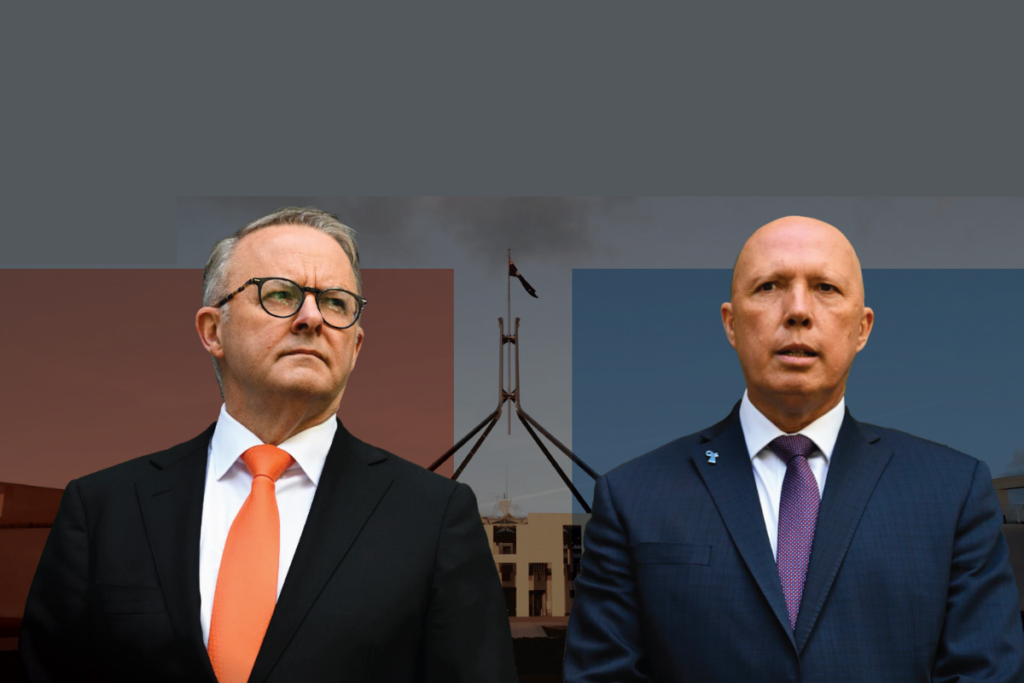
In response to the Australian Federal Election result so far, the Climate Council CEO Amanda McKenzie said: Australian voters have resoundingly rejected Peter Dutton and his nuclear plan.
“This was an energy referendum. Nuclear bombed at the ballot, with Australians dubbing it toxic. Australians backed a bright, clean, renewable energy future and endorsed the progress that has already been made.”
“Polls consistently showed nuclear was unpopular and voters preferred a renewable energy plan to a nuclear one.”
“Peter Dutton is now just the third sitting party leader to lose their seat at a federal election. He not only nuked his party’s chances of winning with pro-pollution policies, but the nuclear fantasy has cost him his own seat.”
“This is one of the lowest primary votes ever for the Liberal Party. Australians sent a clear message in 2022 and again tonight. The Liberal-National Coalition will continue to be unelectable until they come up with a credible policy to cut climate pollution. The largest voting cohort in Australia is now a climate voting block, with three quarters of millennials and gen Z saying climate is a top issue.
“This election has seen a strong swing to climate independents in areas left devastated by Tropical Cyclone Alfred, and right around the nation the Liberal Party’s heartland has eroded as if hit by a cyclone.”
“Voters have shown they will punish candidates who fail on climate issues. Peter Dutton admitted he was unsure about climate science while, in Gilmore, Liberal candidate Andrew Constance was rejected after indicating that the Coalition would withdraw Australia from the United Nations climate agreement.”
Amanda McKenzie is available for interviews.
Categories:
Climate Council backs Greens’ call to block new coal and gas projects
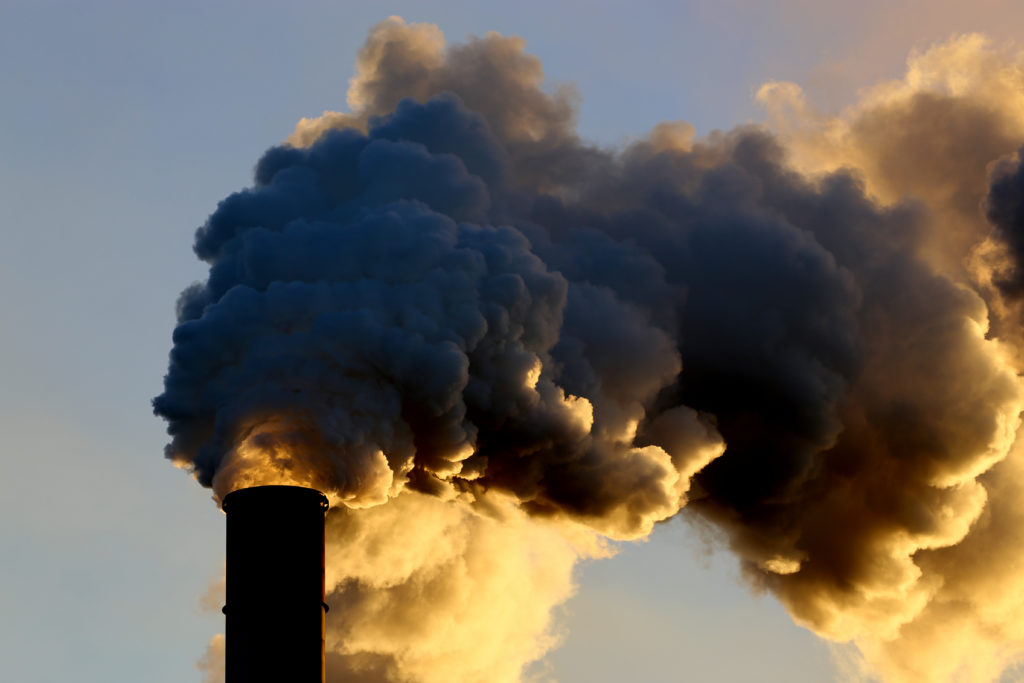
The Climate Council has backed a call by the Australian Greens for Australia’s 48th Parliament to end the approval of new coal and gas projects.
The Greens have proposed that Australia’s next Minister for Climate Change and Energy could utilise existing powers, under the reformed Safeguard Mechanism, to block new fossil fuel developments. They have suggested polluting projects could be blocked by changing regulations to set emission baselines to zero for new coal and gas projects, and preventing these projects from using offsets to reach this baseline, effectively banning new polluting coal and gas projects.
Climate Council CEO Amanda McKenzie said: “The Safeguard Mechanism is a critical tool for tackling fossil fuel pollution from industry. Right now there’s no federal law that can prevent fossil fuel projects. Considering ways to strengthen the Safeguard Mechanism to help stop new polluting projects is a smart and sensible move.
The Climate Council’s recent Climate Crossroads report found that Labor has no clear plan to limit fossil fuel development, while the Federal Coalition is planning to dramatically increase climate pollution by investing even more in polluting gas projects and extending the life of polluting coal-fired power stations. This is a welcome proposal from the Greens.
Climate Council CEO Amanda McKenzie said: “Building new and expanded coal and gas projects is like pouring fuel on a fire. To secure a safer future for our kids, we must stop waving through new fossil fuel developments.
“Opening new mines or gas fields locks in more climate pollution, worsens climate risks like floods, fires and cyclones, and holds our economy back from investing in the industries of the future.
“The ALP approved 26 new coal and gas projects during the last term and more climate pollution bombs are under consideration. Any solution for preventing these projects from going ahead should be considered by the next government.”
Categories:
Scientists urge Peter Dutton to get up to speed on escalating climate risks
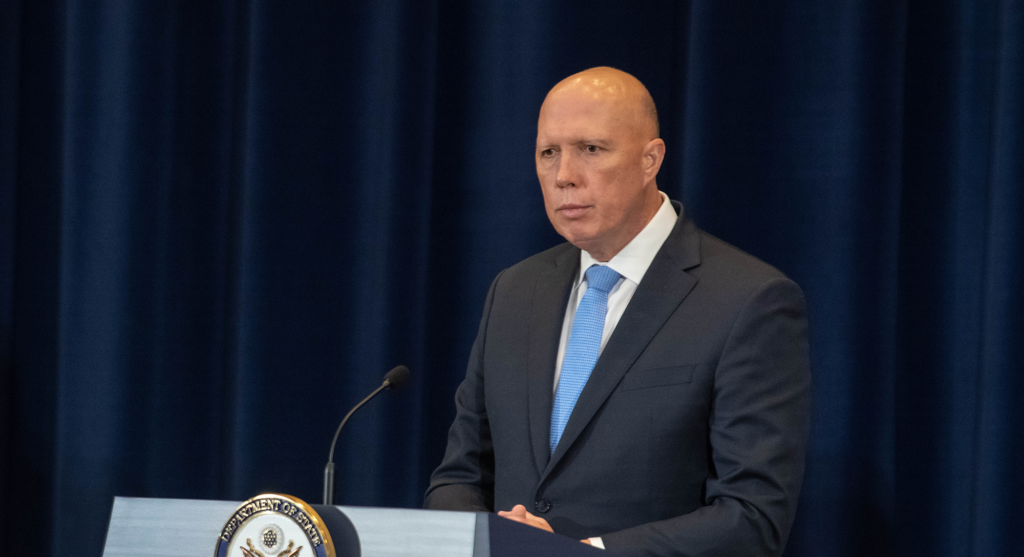
THE CLIMATE COUNCIL today urged Opposition Leader Peter Dutton to urgently accept briefings from leading climate scientists and emergency service experts, after he admitted during the ABC’s leaders debate that he didn’t know if climate change was making extreme weather events worse.
“Climate experts are ready and willing to brief Mr Dutton anywhere, anytime,” said Climate Council CEO Amanda McKenzie.
“It’s outrageous for a senior political leader to be so out of touch that they claim they ‘don’t know’ the risks Australians are facing. In 2025 there is no excuse for someone vying to be Prime Minister not to have educated themselves thoroughly on the science and impacts of the climate crisis.”
Mr Dutton’s comments come as new data shows two million homes and businesses are now at moderate to high risk from worsening, climate disasters, like floods, coastal erosion and bushfires.
“Australians are paying $30 billion more in insurance costs than we were a decade ago. People living in vulnerable parts of the country are increasingly finding they can’t insure their homes because it is unaffordable or unavailable,” said Ms McKenzie.
In Mr Dutton’s own electorate of Dickson 3,692 properties are at such high risk of escalating damage from extreme weather that insurance is becoming unaffordable or could be withdrawn.
“Australians remember the Black Summer bushfires when then-Liberal leader Scott Morrison, rejected repeated offers from experts to brief him on the risks of a catastrophic fire season. Ignoring the experts meant that the Coalition government had not prepared for the Black Summer that followed which certainly put more Australians in danger.
“We hope Peter Dutton doesn’t also bury his head in the sand and takes the opportunity to get informed on one of the biggest risks to our community.”
Emergency Leaders for Climate Action, an organisation bringing together 35 former fire and emergency chiefs, recently offered to brief Mr Dutton on escalating risks of extreme weather. They received no response.
Please find the Climate Council’s letter to Mr Dutton below with a list of available experts and relevant climate change information.
The Hon Peter Dutton MP
Member for Dickson
Parliament House
Canberra ACT 2600
17th April 2025
Dear Mr Dutton,
The Climate Council would like to offer you an urgent briefing from our experts on the substantial and escalating risks the Australian community is facing from worsening extreme weather events.
During the leaders debate last night you noted that you were not a scientist and did not know whether a number of extreme weather events had been made worse due to climate change.
We can provide you with definitive assurance that extreme weather events are becoming increasingly frequent and forceful, harming large numbers of Australians.
The burning of massive amounts of coal, oil and gas has blanketed our planet in pollution that traps heat. Global temperatures have consequently been steadily rising, essentially fueling worsening extreme weather events. While scientists have been providing warnings for decades, today the consequences of the climate crisis are now all around us. The solution is to slash climate pollution, replacing fossil fuel power with clean energy.
I wish to draw your attention to the following:
- Key climate facts:
- Heatwaves have become longer and more frequent since 1950, with a marked increase in heatwave days across Australia.
- Bushfire seasons are now starting earlier and last longer, while the frequency of days with extreme fire weather conditions has increased.
- Extreme rainfall events have become more frequent and intense, leading to greater risk of flooding. Many communities have experienced repeated disastrous flooding events in recent years with communities in South East Queensland and Northern NSW affected most recently by Tropical Cyclone Alfred.
- The cost of extreme weather disasters in Australia has more than doubled since the 1970s, with the higher frequency of disasters pushing up insurance premiums.
- Australians are paying $30 billion more today on insurance than they were only 10 years ago, due to the increased frequency of extreme weather events.
- Recent Tropical Cyclone Alfred brought severe wind, waves and rain to southeast Queensland and Northern NSW. Cyclone Alfred was also made more damaging due to climate change and this is documented extensively in our recent report, Eye of the Storm.
- The costs to Australians of escalating extreme weather is significant. Our recent report At Our Front Door shows that 2 million Australian properties are at moderate to high risk of climate disasters. This has significant implications for Australians welfare, our capacity to insure our homes and national insurance costs.
Please find below a list of our experts available to brief you at your earliest convenience.
Yours sincerely,
Amanda McKenzie
CEO, Climate Council
Experts available to brief Opposition Leader Peter Dutton:
- Professor David Karoly is a Professor Emeritus at the University of Melbourne, having retired from CSIRO early in 2022. He is an internationally recognised expert on climate change science and climate variability having contributed to numerous IPCC reports.
- Professor Lesley Hughes is a Distinguished Professor of Biology, former Pro Vice-Chancellor Macquarie University and former Lead Author in the IPCC’s 4th and 5th Assessment Report.
- Greg Mullins is an internationally recognised expert in responding to major bushfires and natural disasters, with more than 50 years’ experience as a firefighter. He also leads Emergency Leaders for Climate Action.
- Professor Tim Flannery is an internationally acclaimed scientist, explorer and conservationist. Professor Flannery was named Australian of the Year in 2007.
- Associate Professor Grant Blashki is a leading figure in the field of climate change and health, holding positions as Associate Professor at the Nossal Institute for Global Health at the University of Melbourne and as an Adjunct Associate Professor at the Monash Sustainable Development Institute.
- Cheryl Durrant has more than 30 years’ experience in the national security sector, including specialist Army intelligence and Defence capability and preparedness roles. She serves on the Australian Security Leaders Climate Group, and is a member of the Global Military Advisory Council on Climate Change.
- Dr Joëlle Gergis is an award-winning climate scientist and writer. She is an internationally recognised expert in Australian and Southern Hemisphere climate variability and change who has authored over 100 scientific publications.
- Dr Martin Rice is the Director of Research at the Climate Council, having held numerous climate science positions in Australia and abroad.
The Climate Council has numerous science based reports covering climate science, climate change impacts on the Australian community and climate solutions.
Categories: